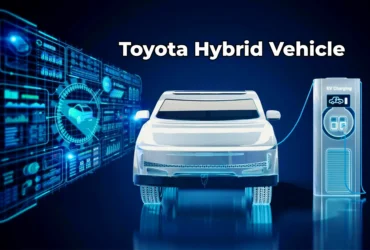Access to charging point station is critically important for the widespread adoption of electric cars. , The advent of electric vehicles (EV) has necessitated the development of a robust charging infrastructure to support the growing number of EV owners. At the heart of this infrastructure are charge stations designed to provide the essential service of replenishing an EV’s batteries.
The electric vehicle charging station, sometimes known simply as a chargepoint, is a hub where drivers can charge their electric vehicle. Companies like Tesla and Electrify America have been at the forefront of expanding the charging network, offering various options from home charging solutions to public charging stations.
EV charging equipment can vary greatly, from Level 2 charging at a home charging station to DC fast charging at public charging locations. DC charging provides a rapid charging solution, greatly reducing the charging time compared to the slower Level 2 charging. This range of options ensures that EV drivers can find a charging solution that meets their needs, whether they opt to charge at home using their own electric car charger or utilize fast charging stations while on the road.
The Alternative Fuels Data Center along with charging networks provide vital information on station locations and charging power, ensuring that EV owners have the knowledge to efficiently charge their electric vehicle. With the right charging cable and access to an appropriate charge port, replenishing an EV’s battery becomes as straightforward as fueling up at a traditional fueling station. As more electric car models enter the market, the demand for convenient and efficient car charging stations continues to grow, paving the way for a greener future.
What are Charging Point Stations?
Charging Point Stations, also known as electric vehicle charging stations, are dedicated facilities that provide electric power to charge electric vehicles (EVs). These stations are equipped with charging equipment and infrastructure necessary to provide a reliable and efficient charging experience for electric cars.
- Charging Point Stations are specialized facilities for charging electric vehicles.
- They provide the necessary infrastructure and equipment for reliable charging.
- Charging Point Stations are revolutionizing the way electric vehicles are charged.
Why are Charging Point Stations Important?
Charging Point Stations play a crucial role in the widespread adoption of electric vehicles. Here are some key reasons why they are important:
- Convenience and Accessibility: Charging Point Stations provide an accessible and reliable charging option for electric vehicle owners. With a network of Charging Point Stations, EV owners can charge their vehicles conveniently at various locations, such as parking lots, shopping centers, and highways.
- Range Anxiety Relief: Range anxiety, the fear of a vehicle running out of charge, is a common concern among EV owners. With Charging Point Stations widely available, drivers can easily find a charging spot and extend their vehicle’s range, alleviating range anxiety.
- Promoting Sustainability: Electric vehicles offer numerous environmental benefits, and Charging Point Stations contribute to the growth of sustainable transportation. By encouraging EV charging, these stations help reduce reliance on fossil fuels and lower carbon emissions.
- Driving Electric Vehicle Adoption: The availability of Charging Point Stations is crucial for encouraging more people to switch to electric vehicles. The convenience and reliability of these stations make owning an EV a viable option for a wider range of consumers.
As the world shifts towards sustainability, the role of electric vehicle (EV) technology becomes paramount, necessitating robust charging infrastructure. Central to this infrastructure is the Charging Point Station, a pivotal component in ensuring electric cars are fueled and ready for the road. These stations, which come in various forms including public charging locations and home charging solutions, are integral to the adoption and convenience of electric mobility.
With options ranging from slow charging equipment designed for overnight use, to DC fast charging setups that can significantly reduce charging time, there is a charging solution for every type of user. Facilities like Electrify America are expanding the charging network, ensuring EV owners can find a charge station with ease, no matter their location.
Beyond the convenience factor, electric vehicle charging stations have become sophisticated, offering features such as Level 2 charging for faster charging power, and home charging stations that enable EV drivers to charge at home. This evolution of charging equipment, including chargers, charging cables, and charge ports, has made owning an electric vehicle more practical than ever.
Companies like Tesla are at the forefront, innovating not just in electric car models but also in the efficiency and accessibility of EV charging. Through the utilization of ChargePoint and similar services, accessing a charging station becomes as easy as locating a traditional fueling station. The Alternative Fuels Data Center continues to catalog these advancements, supporting the transition to electric vehicles by providing comprehensive information on station locations and charging options.
Types of Charging Point Stations
There are different types of charging points available for electric vehicles, offering various charging speeds and compatibility. Some common types include:
- Level 1 Charging: This charging method uses a standard household outlet and provides a slow charging rate. It is suitable for overnight charging or situations where a quick charge is not necessary.
- Level 2 Charging: Level 2 chargers utilize a higher-voltage power supply and offer faster charging speeds than Level 1. These charging stations are commonly found in public locations and residential settings.
- Types of Connectors: Charging Point Stations can support different charging connector types, such as J1772, CHAdeMO, and CCS (Combined Charging System). These connectors vary depending on the vehicle’s make and model.
Comparing the various charging speeds and connector compatibility allows electric vehicle owners to choose the most suitable Charging Point Station for their needs.
How do Charging Point Stations Work?
Understanding the charging process at a Charging Point Station is essential for electric vehicle owners. Here’s an overview of how Charging Point Stations work:
- Connection: Electric vehicle owners connect their vehicles to the charging station using a charging cable and the appropriate connector. The connector is plugged into the charging port of the vehicle.
- Authentication: Some Charging Point Stations require authentication before initiating a charging session. This can be done through smartphone apps, RFID cards, or other authentication methods provided by the station operator.
- Charging Protocols: Charging Point Stations communicate with the electric vehicle through standardized charging protocols. This allows the vehicle and the charging station to exchange information and ensures the safe and efficient transfer of electric power.
- Charging Session: Once the connection is established and authentication is complete, the electric vehicle begins to receive power from the charging station. The charging session continues until the vehicle’s battery reaches the desired state of charge or the charging session is stopped manually.
To understand the charging process and the role of charging cables and connectors helps EV owners get the most out of their Charging Point Stations and optimize their charging experience.
Factors to Consider for Charging Point Station Installation
When setting up a Charging Point Station, several factors need to be considered to ensure the installation is effective and compliant with safety regulations. Here are some important factors to consider:
- Location and Accessibility: Selecting an appropriate location for the Charging Point Station is crucial. Consideration should be given to factors such as parking availability, proximity to electric vehicle hotspots, nearby amenities, and accessibility for people with disabilities.
- Charging Infrastructure: Installing the necessary electrical infrastructure to support the charging station is essential. This includes assessing the power capacity of the location, determining the type of charging stations required, and ensuring proper electrical connections and safety measures.
- Safety Regulations and Requirements: Charging Point Station installations must comply with safety regulations and follow industry standards. This includes adhering to electrical codes, implementing adequate safety measures, and obtaining necessary permits and certifications.
By considering these factors, Charging Point Station installations can provide a reliable and safe charging solution for electric vehicle owners.
Choosing the Right Charging Point Station for Your Car
Choosing the right charging station for your electric vehicle is an important decision. Here are some factors to consider when selecting a Charging Point Station:
Compatibility: Different electric vehicles may require specific charging connectors or protocols. Ensure that the charging station you choose is compatible with your vehicle’s charging requirements.
Charging Speed: Consider the charging speed offered by the Charging Point Station. Depending on your needs and usage patterns, you may require a fast-charging station for shorter charging times or a slower one for overnight charging.
Network Compatibility: Some charging station operators offer membership networks or smartphone apps that provide access to their charging networks. Consider whether you would benefit from such a network for easier access to multiple charging stations.
Location: Evaluate the location of the Charging Point Station and its proximity to your regular routes or destinations. Choosing a station near your home or workplace can offer convenient charging options.
Additionally, online platforms and mobile apps can help you find electric vehicle charging stations in your area, making it easier to plan your charging needs and locate nearby stations.
Steps to Efficiently Use a Charging Point Station
Efficiently using a Charging Point Station involves understanding the charging protocols and following best practices. Here’s a step-by-step guide:
- Charging Protocols: Familiarize yourself with the charging protocols supported by your vehicle and the Charging Point Station. This ensures compatibility and a smooth charging experience.
- Starting and Stopping a Charging Session: Connect the charging cable to your vehicle’s charging port and the Charging Point Station. Authenticate if necessary, and start the charging session according to the charging station’s instructions. To stop the charging session, follow the same process and safely disconnect the cable from your vehicle.
- Monitoring Charging Progress and Time Management: Most Charging Point Stations provide real-time information about the charging progress, including the state of charge, time remaining, and charging speed. Utilize this information to manage your time effectively and ensure that your vehicle reaches the desired state of charge within your planned timeframe.
Following these steps helps electric vehicle owners make the most of Charging Point Stations and maximize their charging efficiency.
Best Practices for Charging Point Station Owners
For owners of Charging Point Stations, providing a positive customer experience is crucial. Here are some best practices:
Maintenance and Cleaning Guidelines: Regularly inspect, clean, and maintain the Charging Point Stations to ensure optimal functionality and safety. Follow manufacturer guidelines and schedules for equipment maintenance.
Clear Signage and Instructions: Clearly display charging policies, instructions, and any necessary charging etiquette guidelines at the Charging Point Station. This helps educate electric vehicle owners and ensures smooth charging operations.
Excellent Customer Service and Support: Respond promptly to customer inquiries, issues, or emergency situations related to the Charging Point Station. Providing reliable customer service and support builds trust and enhances user satisfaction.
Adhering to these best practices helps create a positive charging experience and encourages electric vehicle owners to continue using Charging Point Stations.
The Future of Charging Point Stations
The future of Charging Point Stations looks promising, with continuous advancements and innovations in charging station technology. Here are a few notable developments:
- Faster Charging Speeds: The charging speed of Charging Point Stations is expected to increase significantly, reducing the time required for a full charge. This will further enhance the convenience of electric vehicle ownership.
- Wireless Charging: Wireless charging technology is being developed for electric vehicles, eliminating the need for physical cables and connectors. This technology promises even more convenience and ease of use for electric vehicle owners.
- Integration with Renewable Energy: Charging Point Stations are increasingly being integrated with renewable energy sources, such as solar panels or wind turbines. This promotes sustainable charging practices and reduces dependence on the electrical grid.
As electric vehicles continue to grow in popularity, Charging Point Stations will play a pivotal role in fostering sustainable mobility and driving the transition towards a greener future.
Charging Point Stations are revolutionizing the way electric vehicles are charged, offering convenient and efficient charging solutions. With their importance in promoting sustainability, relieving range anxiety, and supporting the adoption of electric vehicles, Charging Point Stations are essential for the future of electric vehicle charging infrastructure.
By considering factors such as charging speeds, compatibility, and location, electric vehicle owners can find the right Charging Point Station for their needs. Following best practices and embracing future advancements in charging station technology further enhances the charging experience. So, let’s embrace Charging Point Stations and contribute to a greener and more sustainable future.
Do ChargePoint stations cost money?
Yes, ChargePoint stations have a cost associated with them. Users are responsible for the electricity used to charge their vehicles. The cost of charging at a ChargePoint station varies depending on the location and pricing structure set by the station owner.
Some stations might have a flat fee for each charging session, while others may charge by the hour or kilowatt-hour. Additionally, some stations may offer membership plans or discounts for frequent users. Therefore, electric vehicle owners should be aware of the expenses of using ChargePoint stations and take those into consideration when thinking about their charging needs.
What is the difference between charging station and charging point?
Charging stations and charging points differ in scale and function. A charging station is often used to describe a larger facility that includes several charging points. It is a place where the owners of electric vehicles can come and charge their own vehicle. The scale of charging stations is usually larger than charging points. On the other side, charging points are an individual outlet, which electric vehicle owners can use in order to connect the charging plug of their vehicles.
By comparing both charging points and charging station, it is not hared to realize that a charging station is bigger than a charging point. Stations usually provide many more amenities such as parking areas and rest areas than a point does. A point by itself is specifically a charging plug designed for electric vehicle charging. So, the main difference between charging stations and charging points is the infrastructure for electric vehicle charging.
How long does it take to charge at a charge point station?
The amount of time it takes to charge at a charge point station depends on multiple factors. The type of electric vehicle, battery capacity, charging speed of the station, and the current level can all play a role in how long you will need to charge. For a regular electric vehicle with a little battery capacity, a typical charge point station could take around four to six hours for a full charge.
On the other hand, a high-capacity electric vehicle with fast-charging capabilities may only need a fast-charging station to plug in and charge for 30 to 60 minutes for a full charge. Additionally, different speed levels of charging are offered at some stations; Level1, Level2, and DC fast charging. They will affect the charging time. Overall, the range of charging in a charge point station can be from a few hours to a less than an hour depending on the circumstance.









